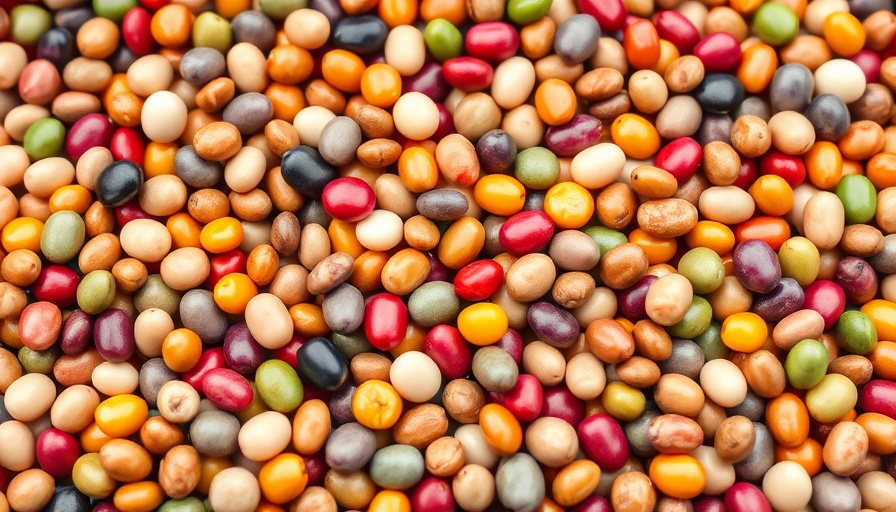
The Secret Power of Beans for Heart and Gut Health
Beans might seem like a humble food, but research reveals their astounding capacity to improve health. Recent studies emphasize the importance of incorporating beans into your everyday diet, particularly if you're concerned about heart and gut health.
Transformative Benefits: A Cup a Day
A groundbreaking randomized controlled trial has found that eating just one cup of beans—black beans or chickpeas—daily can lead to significant health improvements. Over a span of 12 weeks, adults with prediabetes who included a daily cup of beans in their meals saw reductions in cholesterol levels and inflammation markers, both vital indicators of cardiometabolic health.
Participants in the study experienced remarkable changes: those consuming chickpeas reduced their total cholesterol from approximately 200 mg/dL to about 186 mg/dL, primarily through a decrease in LDL cholesterol, often referred to as "bad cholesterol." Conversely, black beans demonstrated a notable effect on inflammation, as evidenced by a decrease in IL-6 levels, a cytokine linked to increased risk of various diseases, from approximately 2.6 pg/mL to 1.9 pg/mL. This reduction signals a positive shift towards better heart and immune health.
More Than Just a Protein Source
Beans are more than just a source of protein; they are a nutritional powerhouse. They are rich in fiber, plant-based protein, and resistant starch, which collectively contribute to better digestion and balanced blood sugar levels while providing a low glycemic index. Their high fiber content promotes gut health, enhances satiety, and can significantly support those looking to manage weight.
Historical Context: Beans in Traditional Diets
Beans have been a staple in many world cuisines for centuries, renowned for their health benefits. Ancient civilizations, including the Maya and Aztec civilizations, considered beans as integral to their diets, accompanied by grains, to create a complete protein. This historical relevance underscores not just their traditional uses but also their scientific validation in contemporary health discussions.
Groundbreaking Research on Beans
The latest research builds upon a foundation of earlier studies confirming the link between bean consumption and improved heart health. Previous investigations noted that bean eaters exhibited lower cholesterol levels and reduced markers for heart disease compared to those consuming a diet low in legumes.
Global Adoption of Beans for Wellness
As the conversation around eating for health grows, beans offer a flexible option that can be adapted to various cuisines worldwide. Whether tossed in salads, blended into dips, or simmered in stews, they provide diverse flavor profiles while promoting sustained health benefits.
Facing Concerns: Common Misconceptions about Beans
Despite their numerous benefits, beans often face skepticism, primarily associated with digestive discomfort. It is essential to note that gradual incorporation of beans into your diet allows the body to adjust, as their fiber content may initially cause bloating for some people. Proper soaking and cooking methods can also mitigate these issues.
Actionable Insights: How to Include Beans in Your Diet
Incorporating beans into your daily meals can be simple. Start with small amounts and experiment with varieties like black beans, lentils, or chickpeas. Try adding them to soups, salads, or as a protein option in tacos and burritos. You can also replace other forms of protein with beans in recipes to boost nutritional content without sacrificing taste.
Invitation to a Healthier Lifestyle
The evidence is compelling: introducing just one cup of beans into your daily diet can significantly impact your heart and gut health. As health-conscious individuals seek affordable, nutritious options, beans stand out as a powerful ally in fighting chronic diseases. So why not start today? Engage with your local community, explore new recipes, and prioritize beans in your meals for a healthier tomorrow.
 Add Row
Add Row  Add
Add 



 Add Row
Add Row  Add
Add 
Write A Comment